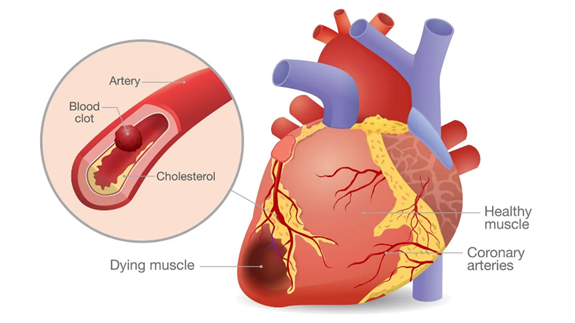A client diagnosed with end-stage renal disease tells the nurse he is afraid of dying from a heart attack. Which of the following responses should the nurse make?
"Perhaps you should discuss this with your physician."
"Of course, you aren't going to die, at least not in the immediate future."
"Tell me more about these fears of dying from a heart attack."
"I recommend you exercise daily and avoid smoking to decrease your risk."
The Correct Answer is C
Choice A Reason:
While suggesting the client discuss their concerns with their physician is a valid response, it may not provide the immediate emotional support the client is seeking. It's important for the nurse to address the client's current anxiety and provide reassurance before referring them to their physician.
Choice B Reason:
This response dismisses the client's fears and may come across as insensitive. It's crucial to acknowledge the client's emotions and provide a supportive environment where they feel heard and understood.
Choice C Reason:
Encouraging the client to express their fears allows the nurse to provide emotional support and helps in understanding the client's perspective. This approach fosters a therapeutic relationship and can help alleviate the client's anxiety.
Choice D Reason:
While recommending lifestyle changes is beneficial for overall health, this response does not address the client's immediate emotional needs. The nurse should first provide support for the client's expressed fears before discussing lifestyle modifications.

Nursing Test Bank
Naxlex Comprehensive Predictor Exams
Related Questions
Correct Answer is B
Explanation
Choice A reason:
Taking away TV privileges and placing the client in seclusion could be perceived as punitive rather than therapeutic. It may escalate the situation and does not address the immediate need to ensure safety and de-escalate the aggression.
Choice B reason:
Stating that hitting others is unacceptable is a clear and direct way to address the behavior. It sets a firm boundary and communicates the expectations for behavior within the unit, which is essential in managing aggressive situation.
Choice C reason:
Saying that the behavior will disappoint the provider personalizes the issue and may not be effective in the moment. The focus should be on the immediate safety of all clients and the unacceptability of the behavior, rather than on the potential emotional response of the provider.
Choice D reason:
Asking why the client hit another client immediately after the incident may not be productive and could lead to further justification of the behavior or additional aggression. It's important to first address the behavior and ensure safety before exploring the reasons behind it.
Correct Answer is B
Explanation
Choice A Reason: While this response may seem compassionate, it does not encourage the client to engage in activities that could benefit their mental health. Allowing the client to remain isolated may reinforce feelings of helplessness or depression. It is important to motivate clients to participate in therapeutic activities to promote their recovery.
Choice B Reason: This response is supportive and offers a compromise. It acknowledges the client’s current state and provides assistance, while also gently encouraging participation in activities. By offering help and allowing for rest afterward, the nurse is using an empathetic approach to facilitate the client’s involvement in the unit’s programs.
Choice C Reason: This response is coercive and could be considered a threat. It is not therapeutic to withhold basic needs such as meals as a form of punishment or to force compliance. Such an approach can damage the nurse-client relationship and is not conducive to the client’s recovery.
Choice D Reason: This response may come across as dismissive and demanding. It does not offer support or acknowledge the client’s feelings. Telling the client what they “need” to do without offering help or understanding can lead to resistance and a lack of trust in the nurse-client relationship.
Whether you are a student looking to ace your exams or a practicing nurse seeking to enhance your expertise , our nursing education contents will empower you with the confidence and competence to make a difference in the lives of patients and become a respected leader in the healthcare field.
Visit Naxlex, invest in your future and unlock endless possibilities with our unparalleled nursing education contents today
Report Wrong Answer on the Current Question
Do you disagree with the answer? If yes, what is your expected answer? Explain.
Kindly be descriptive with the issue you are facing.
